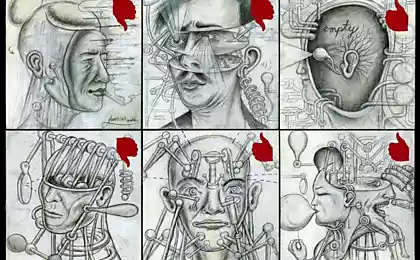723
As people around the world are laughing on the Internet
Internet correspondence in different languages has its own characteristics. One of them - the designation of laughter. For example, it is difficult to imagine, but our usual "ha ha" in Thai or Japanese is designated a completely unexpected way.
For intrigued Website is a few cards with designations of laughter that are accepted in the correspondence in different countries.
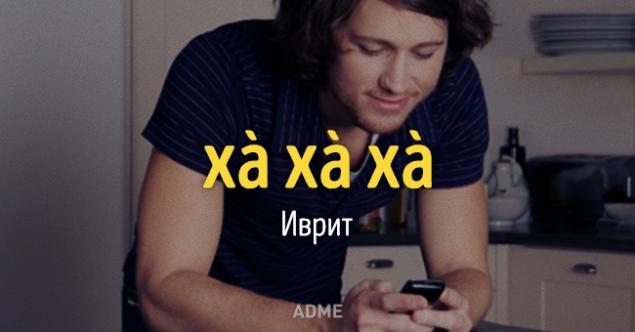
It's simple: just the same "hahaha", as well as in Russian.

This is not an acronym from the Internet, and the reduction of the character for laughs (笑 - «Varus"). In his chats cut to "y", and it came to refer to laughter.

Who is not familiar with the English «haha»? That's really our similarity with anyone on this issue one hundred percent.

We Icelanders similarly: haha, hehe, híhí.

Brazilians on their Portuguese writing huehuehue or rsrsrsrs. Vowels can vary, but the consonants - no.
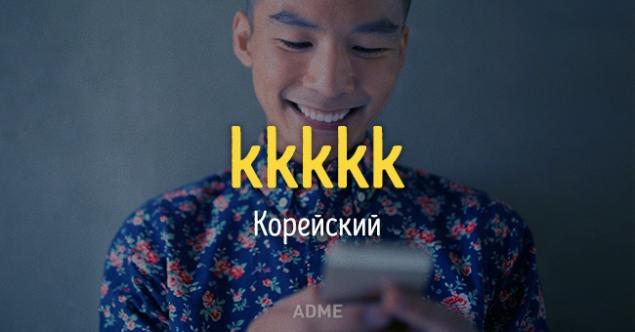
This is from ㅋㅋㅋ - Korean equivalent of our "hahaha».

Here, perhaps, explanations are unnecessary.

The French, in addition to the onomatopoeic signs of laughter, there is a more charming reducing MDR (mort de rire), which literally translates as "dying of laughter».

The Danes are also no special differences, they write ha ha, hi hi, hæ hæ, ho ho or hi hi.

In Spanish «j» - is "x", so when they write «jajaja», which means "hahaha».

In the Italian vowel that you use to convey your laughter indicates its tone. For example, ahahah - a standard, laughter, eheheh - rather smile, ihihih - giggling, sometimes denoting sarcasm.

In this case, there is a similarity with the French (MDR) and American (LOL) species. DWL in Jamaican dialect stands for «Dead With Laugh» or «Dying with Laughter», which literally means "dying with laughter».
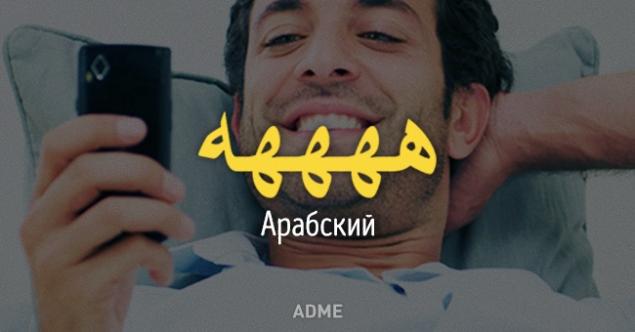
In Arabic, there is no short vowels, so these characters literally spelled as "xxxx" and read in this context as "hahaha».
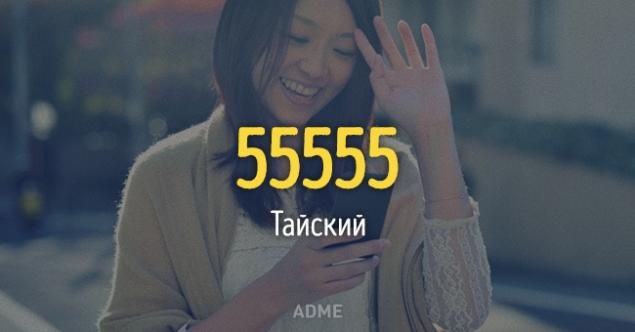
Thai number 5 is pronounced "ha". Therefore, to write "ha-ha-ha-ha-ha," Thais sometimes written 55555.
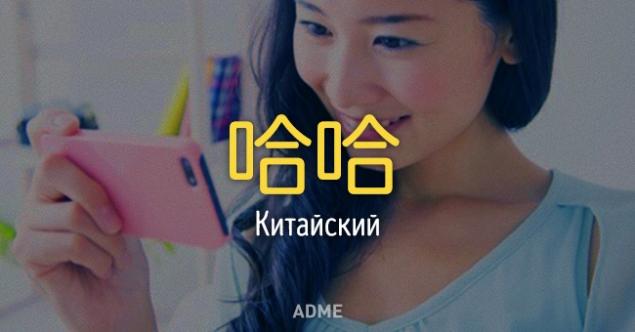
The word "laughter" is written as 笑声, and pronounced as "xiao shen" in Mandarin but also uses onomatopoeia, ie, character 哈哈, which reads like a "ha ha," and the character 呵呵, or "hehe". A character 嘻嘻 («CC») means a chuckle.
via inosmi.ru/world/20121213/203320058.html
For intrigued Website is a few cards with designations of laughter that are accepted in the correspondence in different countries.

It's simple: just the same "hahaha", as well as in Russian.

This is not an acronym from the Internet, and the reduction of the character for laughs (笑 - «Varus"). In his chats cut to "y", and it came to refer to laughter.

Who is not familiar with the English «haha»? That's really our similarity with anyone on this issue one hundred percent.

We Icelanders similarly: haha, hehe, híhí.

Brazilians on their Portuguese writing huehuehue or rsrsrsrs. Vowels can vary, but the consonants - no.

This is from ㅋㅋㅋ - Korean equivalent of our "hahaha».

Here, perhaps, explanations are unnecessary.

The French, in addition to the onomatopoeic signs of laughter, there is a more charming reducing MDR (mort de rire), which literally translates as "dying of laughter».

The Danes are also no special differences, they write ha ha, hi hi, hæ hæ, ho ho or hi hi.

In Spanish «j» - is "x", so when they write «jajaja», which means "hahaha».

In the Italian vowel that you use to convey your laughter indicates its tone. For example, ahahah - a standard, laughter, eheheh - rather smile, ihihih - giggling, sometimes denoting sarcasm.

In this case, there is a similarity with the French (MDR) and American (LOL) species. DWL in Jamaican dialect stands for «Dead With Laugh» or «Dying with Laughter», which literally means "dying with laughter».

In Arabic, there is no short vowels, so these characters literally spelled as "xxxx" and read in this context as "hahaha».

Thai number 5 is pronounced "ha". Therefore, to write "ha-ha-ha-ha-ha," Thais sometimes written 55555.

The word "laughter" is written as 笑声, and pronounced as "xiao shen" in Mandarin but also uses onomatopoeia, ie, character 哈哈, which reads like a "ha ha," and the character 呵呵, or "hehe". A character 嘻嘻 («CC») means a chuckle.
via inosmi.ru/world/20121213/203320058.html





